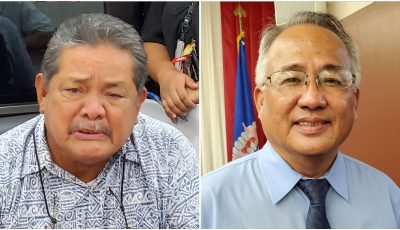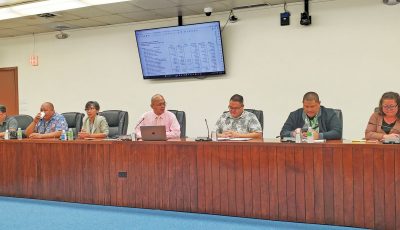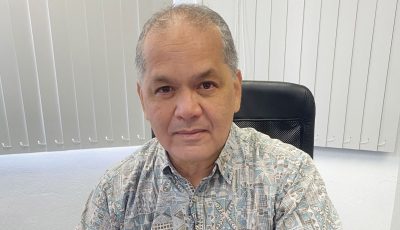House of cards and other games
Now that the government has given Best Sunshine International the green light to set up a $25 million temporary Saipan casino to serve as a “live” training facility starting in “June or July,” the Commonwealth Casino Commission must really be racing against time to draft the regulations that will govern the touted multibillion casino industry.
The last thing Saipan needs is an unregulated casino industry if no regulations are in place before the temporary casino opens on the ground floor of T Galleria in Garapan. Parts of the casino legalization process have already proven to be not inspiring confidence to begin with.
Under the law, casino commissioners are compensated $40,000 on the first year. They will be compensated $20 an hour for official meetings in succeeding years. The expectation is that the commissioners have already started drafting the regulations that they earlier said could be patterned after those adopted in Macau, Singapore, the Philippines, Rota, Tinian, and Las Vegas in Nevada.
A casino operation on Saipan was initially not expected until at least 2016. That would have given the commission more time to finalize the regulations. But Best Sunshine’s timeline and plans for its promised $7.1-billion integrated casino resort have changed, with the government’s approval.
Here’s to hoping that once the regulations are drafted, the Commonwealth Casino Commission would open them for public comments and carefully consider public input before finalizing them. The public comment period alone normally eats up 30 days.
But this early, some lawmakers and community members want clarification whether Best Sunshine’s “temporary” casino at T Galleria would need regulating at all, considering that it’s a “training facility.”
Slush fund?
Rep. Ralph Yumul (Ind-Saipan), along with four other lawmakers, introduced a bill to appropriate $4.2 million in lapsed funds from “Business Unit No. 3490” to help the beleaguered Commonwealth Healthcare Corp. pay its utility bills.
“Business Unit No. 3490,” according to Yumul over the weekend, refers to the Commonwealth Alien Deportation Fund that was created under Public Law 10-1. That alien deportation fund law was meant to assist in the investigation, apprehension, detention, and deportation of illegal aliens. Then governor Froilan C. Tenorio signed it into law on Feb. 28, 1996.
The alien deportation fund was established by taking $25 from every initial application fee and from every renewal fee for nonresident worker permits. It is a dedicated fund in the CNMI Treasury.
It has become a “slush fund” for different administrations for many years, Yumul said, adding that the alien deportation fund has not been subject to legislative appropriations since 1996.
The federal government has also taken control of CNMI immigration.
Kudos to Yumul and co-authors of House Bill 19-36 for identifying fund sources to help CHCC pay $4.2 million of its nearly $15 million debt to cash-strapped CUC, representing unpaid utility service and late fees.
Just last week, Superior Court Judge David A. Wiseman cited CHCC for civil contempt for failing to comply with the court’s two outstanding orders to pay CUC and remain current on its utility payments.
The Inos administration or the Department of Finance, however, might still disagree on the existence of such $4.2 million in lapsed funds from the alien deportation fund. So there is still no guarantee at this time that the bill will pass and become law.
Same level
Gov. Eloy S. Inos told lawmakers that his proposed fiscal year 2016 operational budget would be the same level as the 2015 budget, which is $134 million. Some lawmakers who came out of that meeting with the governor had to ask “why?”
No expected increase in government revenue from taxes and fees from the current year, even after the administration itself has been touting improved tourism activities, new investors and the multiplier effects of casino investor Best Sunshine’s supposed economic contributions in 2016 alone, including the soon-to-open temporary casino at T Galleria?
The retirement settlement agreement payment that the government is required to pay in fiscal year 2016 is $30 million, which is $3 million more than the $27 million in fiscal 2015. Some lawmakers believe there’s got to be more than $3 million increase in revenue available for government operations once Best Sunshine’s temporary casino opens its doors in 2016, for example.
But maybe, just maybe, the governor would have higher figures when he submits his actual proposed 2016 budget to the Legislature on or before April Fool’s Day.



























